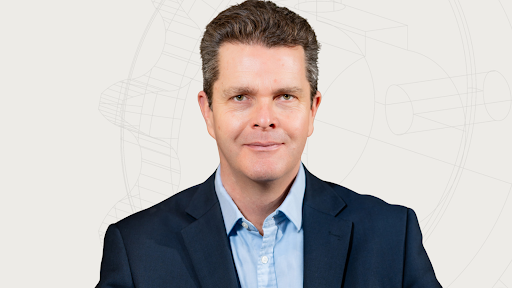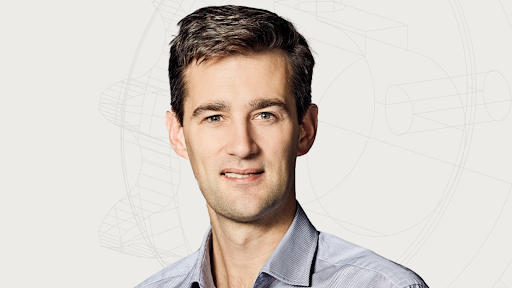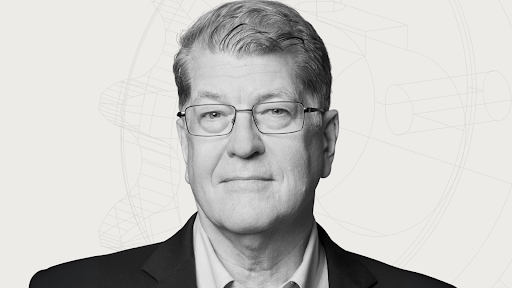
In this Telescope Lens Q&A, we talk with Alasdair Maclay, Managing Director at GSG Impact, a UK-based organization focused on building impact economies. From impact valuation methodologies to the governance challenges of emerging technologies, Alasdair shares insights on how we can leverage AI and innovative finance to create more inclusive economic systems that work for all.
Tell me a little bit about what your day to day is like and how that interacts with the work that Telescope does.
Our day to day work at GSG Impact is very aligned with Telescope's mission. Our mission is to build impact economies. We work with policymakers, regulators, investors to try and create an environment where more capital can flow to positive impact. We call that an impact economy, where impact is at the heart of all decision making, whether that's decision making by governments, by investors, by consumers. That's the heart of our work across 50 countries driving this policy, and the regulatory system changes every day.
In that work, is there an idea that you've come across recently that's made you think like, this could really change things for the better?
For me, one of the most exciting opportunities ahead of us is around impact valuation, putting a value, normally a monetized value, on every aspect of social environmental impact. So not just thinking about the economic risk and return. All those things we were once told were externalities, putting an impact valuation on pollution, on carbon emissions, on quality of life. We're able, using new technologies and new methods, to actually put a monetized value against those impacts.
For me, it's a very pivotal moment for impact to be able to put a valuation on all impacts—social, environmental—and then to be able to make decisions based on that information. For example, for an investor, if I want to build a positive portfolio, I need to be able to work out how to make trade offs between different options and include trade offs with financial risk, return and impact, and ensure all three of those inputs are contributing towards shaping my portfolio.
There's a big role for AI and technology to make this effective, efficient and meaningful for everybody. Because that's a lot of fairly simple logic behind impact valuation, but actually delivering it in its entirety requires a lot of computing and intelligence to make it happen.
How do you think that impact valuation can make the world more secure, more prosperous? And with AI in mind and the toolsets that are coming to bear, what do you see as the best avenue for that?
One of the biggest flaws we have in our system today is if everyone's optimizing in a perfectly competitive business environment for themselves, then all we tend to do is a zero sum gain. Some win, some lose. It makes for a pretty disappointing result for the world at large—all people, all nature, our planet.
The impact valuation monetization concept enables us to make those trade offs. It helps us think, you invest in this factory to create this type of food. Is that going to make people healthier? Or is it just going to provide cheaper food but damage their health? We've done interesting work with food companies where we've looked at their financials, then we also look at the public health impact of their products.
We developed a methodology over the last five years with Harvard Business School that allows a machine or people to interrogate the data and then start making these trade offs and decisions. If you use it well, it's an essential tool, but we need the right level of transparency and honesty about it to make the right decisions. Alongside it, we need to make sure we've got the right governance models to enable that to be done responsibly.
How can we do a better job of finding and lifting up emerging or nontraditional talent and helping them grow their impact through access to these types of tools?
We believe that supporting very small businesses, small medium sized enterprises in emerging markets in Africa is the way to create opportunity, to create meaningful livelihood jobs for the millions of people who are otherwise going to miss out on the chance of a decent quality of life through lack of employment or economic activity around them.
We can leverage the impact valuation to help investors channel capital in that way because they'll understand the true impact of that investment. How do you quantify the health impact, the livelihood impact of lifting up entire villages, which otherwise would have been left on the sidelines by existing business models? In the US it might be particular suburbs or areas or races or ethnicities of people who have been left out.
We applied the impact valuation methodologies on employment. We looked very carefully what's the makeup of the employees at the business compared to the neighborhood around them? Is it a fair representation? This methodology is incredibly powerful because it can tell a company that it's creating a plus $25 million employment benefit, or a -$50 million employment deficit based on factors like what sort of salaries and wages it's paying its people. It can provide very useful decision-making information.
Is there anyone out there that you've admired recently who's doing work that inspires you in advancing security, prosperity, and positive change in the world?
I get the privilege of meeting many extraordinary people. Maybe I'll mention two people.
One is Sir Ronald Cohen. Ronald Cohen is known as the Godfather of Impact. He is a tireless champion for innovative finance and impact. He's got a sharp brain, but he's also very creative and entrepreneurial and is able to shape these new products and see their application. The other person I met recently is Jay Cziraky. Jay's come up with this new idea called the No End Company. The idea is that he's creating businesses, organizations which have no end, that are designed for perpetuity. There's no stakeholder extraction. Shareholders can't take their money out. That throws up interesting challenges to how capitalism works today.
If you could ask either of them a question about what the future holds, what would that be?
Maybe I'd ask them: Is reimagining capitalism through impact investment, impact transparency, no end companies, impact measurement—is it enough? Is it enough to drive the right future for our world, our people, our planet? Or do we actually need to completely change this global system? Do we need to find some model where we break down the nation state, we break down the whole theory of democracy, capitalism, and start afresh?
For me, the question is, is it enough just reimagining capitalism through these very clever, innovative tools and methods, or do we need to do something truly, radically different? They're both very committed to reimagining, but also they're very bold in their vision. Sometimes it's too easy to keep tweaking the edges when actually you need a complete reboot and a restart.
Imagine a machine that makes the best outcome decisions for all of us with well-informed inputs which are inclusive, democratic, and helps people make the right decisions in a very transparent, visible way, which ultimately leads to better outcomes for people and the planet. That is something somewhat radically different. And maybe some people might say it's impossible, but maybe not. Certainly technology has this great opportunity leveraging the concept of impact valuation with AI decision making power. Maybe we could make the right decisions and that would be a lot more than tweaking the edges of how capitalism works.
Watch a video clip from the interview on our YouTube channel



.png)
In this Telescope LENS Q&A, we talk with David Winickoff, Head of the Responsible Innovation Unit at the Organization for Economic Cooperation and Development (OECD). From his perspective bridging academic expertise with international policy development, David shares insights on how to realize the enormous potential of emerging technologies while managing risks—and why anticipating technological change, rather than reacting to it, is key to building a better future.
.png)
In this Telescope LENS Q&A, we talk with Dr. Rumman Chowdhury, CEO and founder of Humane Intelligence Public Benefit Corporation and co-founder of the nonprofit Humane Intelligence. From her perspective as both a social scientist and AI ethics pioneer, Rumman shares insights on bridging the gap between technology development and what people actually want to see in the world—and how everyday voices can shape the AI systems being built around us.
.png)
In this Telescope LENS Q&A, we talk with Erika Staël von Holstein, Co-Founder and Chief Executive of Re-Imagine Europa. Drawing from her expertise in neuroscience and narrative strategy, Erika shares insights on how our thinking patterns shape reality, why we need to listen to those we disagree with, and how AI can help us build wiser technology by understanding the limits of our own narratives.
.png)
In this Telescope LENS Q&A, we talk with Michelle Giuda, CEO of the Krach Institute for Tech Diplomacy at Purdue University. From her perspective as both a former student athlete and a leader in global technology policy, Michelle shares insights on how the United States and its allies can deliberately shape a future of freedom, prosperity, and security, powered by trusted technology and new models of collaboration.
.png)
In this Telescope LENS Q&A, we talk with Kristen Edgreen Kaufman, Senior Vice President of Global Impact Initiatives at the U.S. Council for International Business (USCIB). With extensive experience bridging global public policy and private sector interests, Kristen shares insights on fostering innovation ecosystems, building coalitions across political divides, and ensuring American competitiveness in emerging technologies.
.png)
In this Telescope LENS Q&A, we talk with Chris Massey, founder and CEO of The Brds Nst. Drawing from his diverse experience across government and private sector, Chris shares insights on demystifying government for entrepreneurs, the transformative potential of AI across healthcare and elder care, and how innovation can serve both security and prosperity when we all "row in the same direction."
.png)
In this Telescope LENS Q&A, we talk with Heather Panton, General Counsel at Labrys Technologies. A former national security lawyer in the UK government who transitioned to the startup space two years ago, Heather shares insights on building compliance into innovation from the ground up, bridging the gap between private sector innovation and government needs, and creating technology that serves the public good.


